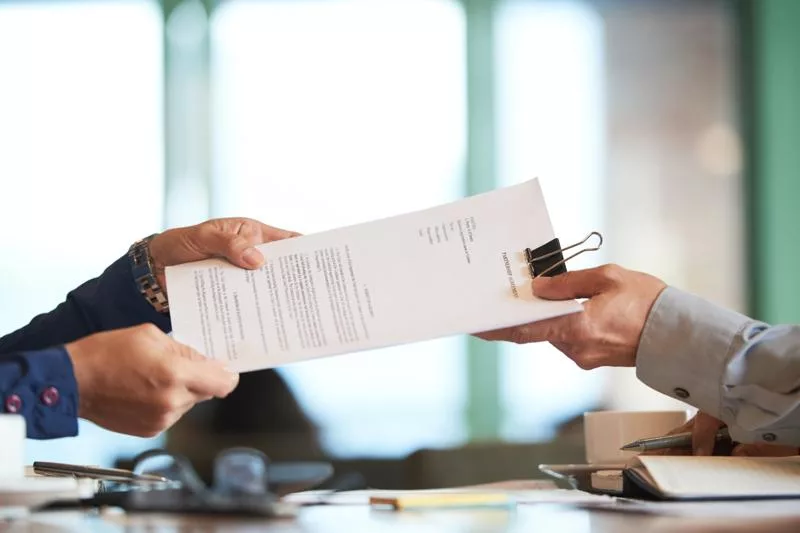Inheriting a home in Los Angeles can be a blessing, but it also comes with significant legal and financial responsibilities. Whether you’re ready to sell or still weighing your options, this guide walks you through everything you need to know about selling inherited property in LA, including probate rules, tax implications, and how to avoid common delays.
How to Sell Your Inherited Property in Los Angeles, CA
Inheriting a home in Los Angeles can be a blessing, but it also comes with significant legal and financial responsibilities. Whether you’re ready to sell or still weighing your options, this guide walks you through everything you need to know about selling inherited property in LA, including probate rules, tax implications, and how to avoid common delays.
Step 1: Gather the Necessary Legal Documents
Before you can legally sell your inherited property in Los Angeles, CA you’ll need to collect key documents. These include the death certificate, proof of ownership, and any legal paperwork that clarifies how the property has been passed down. Having these ready upfront can help avoid delays and complications during the sales process.
Death Certificate
The death certificate serves as official proof of passing and is required for probate proceedings and property title changes in California.
- Usually obtained from the LA County Department of Public Health
- Multiple copies are recommended for various legal processes
- Processing time can take 1-2 weeks
Request a death certificate – LA County Registrar
Property Title and Deed
The property title shows current ownership and reveals any existing liens, mortgages, or co-ownership situations that could complicate the sale.
- Check if the title is clear or if there are liens or co-owners
- Consider using a title company to perform a title search
- Review for any restrictions or easements on the property
Will or Trust (If Applicable)
If the home is in a trust, you will need a valid will or trust document that clarifies who the rightful heirs are and how the property should be distributed among beneficiaries.
- Clarifies rightful heir(s) and their ownership percentages
- If no will exists, the estate goes to probate under California’s intestate succession laws
- Trust documents may allow you to bypass probate entirely
Mortgage, Tax, and Utility Documents
Outstanding financial obligations on the property must be identified and addressed before any sale can proceed through escrow.
- Identify outstanding balances or obligations on the property
- Contact the mortgage servicer to discuss assumption or payoff options
- Review property tax records for any delinquent payments

Step 2: Understand the Probate Process in Los Angeles
In many cases, inherited homes must go through probate, the legal process for distributing a deceased person’s estate. Probate requirements and timelines can vary by county, and Los Angeles has specific rules and forms you’ll need to follow. Whether or not probate is needed depends on how the property was owned and whether there’s a valid will or trust.
When Probate Is Required
Probate becomes necessary when the deceased person owned property solely in their name without any joint ownership arrangements or trust structures. LA County probate is handled through the Los Angeles Superior Court Probate Division, which processes thousands of cases annually.
Simplified Probate Options
California offers streamlined procedures for smaller estates that can significantly reduce time and costs compared to full probate proceedings.
- Small Estate Affidavit (for estates under $184,500 total value)
- Spousal Property Petition for surviving spouses
- Summary probate procedures for qualifying situations
Agreement Among Heirs
When multiple people inherit the same property, unanimous agreement is required for any major decisions, including whether to sell your inherited property Los Angeles CA.
Selling a House in Probate
If the inherited property is still in probate, you can still move forward with a sale, but you’ll likely need court approval. In most cases, the executor or administrator must be formally appointed by the court and follow specific rules for selling estate property.
- The probate court may require a hearing or notice to heirs
- Estates under the Independent Administration of Estates Act (IAEA) may not need court confirmation
- You must act as the legally appointed personal representative
- Sales must follow probate guidelines, including disclosures and legal notices
For more information, read our article on How to Sell a House in Probate.
Step 3: Resolve Any Financial or Legal Issues
Before you can move forward with the sale, you’ll need to make sure the property is financially and legally clear. That includes paying off outstanding debts, resolving any liens on the title, and confirming that all heirs agree to the sale. Skipping this step can result in costly delays or legal disputes.
Clear Any Liens or Debts
Any outstanding financial obligations must be resolved before the property can be sold with clear title to new buyers.
- Property taxes, HOA fees, and utility bills must be current
- Mortgage balances can be paid off through escrow at closing
- Contractor liens or judgment liens require separate resolution
The escrow company will typically handle payoffs of most debts using proceeds from the sale, making this process straightforward for sellers.
Address Ownership Disputes
Disagreements between heirs about selling the property can halt the entire process and may require legal intervention to resolve.
- All heirs must sign listing agreements and sale documents
- Mediation services can help resolve disputes without court involvement
- Some situations may require partition lawsuits to force a sale
Professional mediation often costs less and moves faster than court proceedings while preserving family relationships.

Step 4: Decide What to Do With the Property
Once the legal groundwork is in place, you have several options: you can sell the home, rent it out, move in, or even walk away from the inheritance entirely. Each option comes with its own pros and cons, especially when you are navigating a market like Los Angeles. Your choice depends on your financial goals, the property’s condition, and your long-term plans.
Sell Through a Real Estate Agent
Traditional real estate sales typically yield the highest sale price but require significant time, preparation, and ongoing involvement throughout the marketing process.
Accept a Cash Offer from a Home Buyer
Cash buyers like Osborne Homes offer speed and convenience, making them ideal for inherited properties that need repairs or when heirs want to sell your inherited property Los Angeles CA quickly without delays.
Rent It Out
Converting the inherited property into a rental can provide ongoing income, but requires active management and comes with landlord responsibilities and potential tenant issues.
Move In or Keep It in the Family
Some heirs choose to live in the inherited home or transfer it to other family members, though this involves title transfers and ongoing maintenance responsibilities.
Disclaim the Inheritance
Walking away from an inherited property is possible in California, especially when the home has more debt than value or requires expensive repairs.
Step 5: Know the Tax Implications
Taxes are one of the most overlooked parts of selling inherited property. In California, heirs often benefit from a “stepped-up basis,” which can reduce capital gains taxes. However, depending on the sale price and property value at the time of inheritance, you may still owe federal taxes. Understanding these implications early can help you avoid surprises down the line.
Capital Gains Tax & the Stepped-Up Basis
The stepped-up basis rule can significantly reduce or eliminate capital gains taxes when you sell your inherited property Los Angeles CA.
- The home’s value resets to fair market value at time of death
- You only owe tax on the difference between this value and your sale price
- Most inherited homes qualify for this beneficial tax treatment
California Estate Taxes
California does not impose state-level inheritance or estate taxes, though federal taxes may apply to very large estates.
- California has no state inheritance or estate tax
- Federal estate tax applies only to estates over $13.61 million (2025 threshold)
- Most families won’t face estate tax obligations
Property Tax Reassessment
Recent changes to California law affect how inherited properties are taxed going forward, potentially increasing annual property tax bills.
- Under Prop 19, inherited properties may face reassessment to current market value
- Exception exists if transferred to a child who uses it as primary residence
- Reassessment can dramatically increase annual property taxes
Learn about Prop 19 – California Board of Equalization

How Osborne Homes Helps LA Families Sell Inherited Homes Fast
Osborne Homes specializes in helping Los Angeles families quickly sell your inherited property Los Angeles CA, without the hassles of traditional real estate sales.
- No repairs, staging, fees, or commissions required
- We handle paperwork coordination and work with probate attorneys
- Get a fair cash offer and close on your timeline
- Over 15 years of experience with inherited properties
We are the reason more Los Angeles homeowners are selling for cash. Contact us today and get your cash offer started!
Get Your Free Cash Offer Today
Frequently Asked Questions
Common questions about selling inherited property in Los Angeles with practical answers for heirs navigating this process.
1. How long does probate take in Los Angeles?
Probate typically takes 6-12 months in LA County, depending on estate complexity and current court backlog. Simple estates may move faster, while contested cases take longer.
2. Do I have to go through probate to sell inherited property in California?
Not always. Properties held in living trusts or with joint ownership arrangements often bypass probate entirely, allowing for quicker sales.
3. What taxes will I pay when selling an inherited house?
Capital gains taxes may apply, but the stepped-up basis rule often minimizes or eliminates tax obligations for most inherited property sales.
4. What if there are multiple heirs and we don’t agree?
Unanimous agreement is required to sell your inherited property Los Angeles CA. Mediation or legal intervention may be necessary to resolve disputes between heirs.
5. Can I sell an inherited house before probate is complete?
Generally no, unless you obtain specific court approval or the property qualifies for simplified probate procedures in California.
Additional Resources for Selling an Inherited Property in Los Angeles, CA
Selling inherited property often involves legal and tax complexities. We’ve gathered trusted resources from Los Angeles County and the State of California to help you make informed decisions and get the support you need.
- Los Angeles County Probate Court: lacourt.org/probate
- California State Controller – Property Tax FAQs: sco.ca.gov
- California Probate Code Overview: leginfo.legislature.ca.gov
- LA County Tax Assessor – Inherited Property & Prop 19: assessor.lacounty.gov

